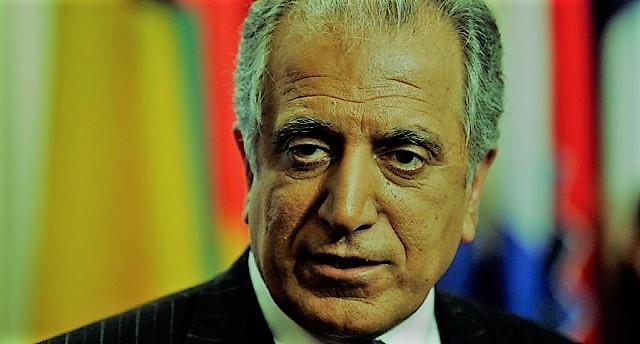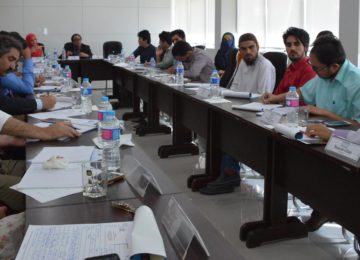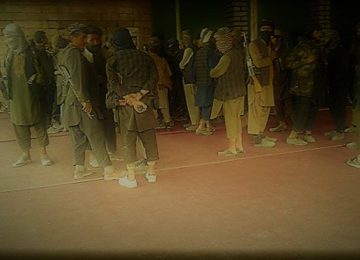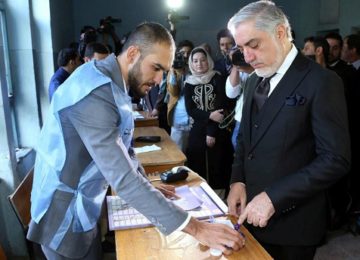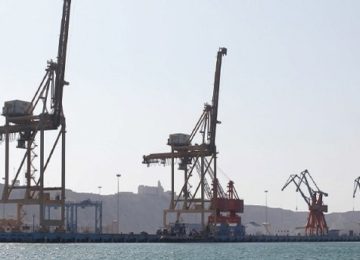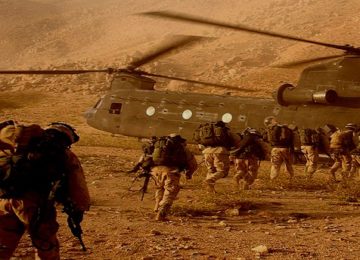April 29, 2019
Monday, April 29, marks another day of controversies for Afghanistan’s fledgling peace process. In Islamabad, the US special envoy for Afghan peace Zalmay Khalilzad is meeting with Pakistani leaders in continuation of the process he had launched in Doha last year.
In Kabul, the four-day “Loya (grand) Jirga (LJ)” that President Ghani has convened in controversial circumstances got underway. The stated objective of both Ghani’s Jirga and Khalilzad’s mission is peace in Afghanistan.
Controversy, nevertheless, continues.
Personal likes and dislikes and at times devious conduct, it seems, continue to muddy waters, obscuring the end-goal.
Khalilzad began his mission in a big way but as time passed and he realized his limitations, vis-a-vis the Taliban, he occasionally singled out Pakistan for the reticence of the radical militia. His tweets and statements often betray his intrinsic dislike, if not hatred, for Pakistan.
Isn’t Khalilzad’s conduct perilous to President Trump’s resolve to disengage from Afghanistan before the end of the year?
At times, he seems to be playing a double game, creating doubts, insinuating and casting indirect aspersions on Pakistan and its allies; such as China and Russia. The latter in particular took offense to Khalilzad’s attempt to project even the “Moscow Process” as part of his Doha mission.
Look at the following tweet:
Greatly appreciate @ImranKhanPTI’s statement yesterday on #Afghanistan. His appeal for reduction of violence and policy against promoting internal conflict in other nations has potential to positively transform the region and give #Pakistan a leading role. https://t.co/VATrqWhTg2
— U.S. Special Representative Thomas West (@US4AfghanPeace) April 26, 2019
The second sentence here merits a little scrutiny.
Anybody reading this part of the tweet …..(PM Khan’s) appeal for reduction of violence and policy against promoting internal conflict in other nations, would assume that Pakistani premier is now committing “not to promote conflict in the neighboring Afghanistan.”
Beside his penchant to arraign Pakistan whenever possible, Khalilzad has also annoyed Taliban; the militia insists that their talks with the US envoy center only on withdrawal and a mechanism to prevent Afghanistan from being used for cross border terrorists.
In another statement, Khalilzad postulated, much to the chagrin of Taliban: “We are seeking peace and a political settlement, not a withdrawal”, the envoy told Tolo News TV on Sunday.
In another tweet Khalilzad said:
(1/3) We are distressed by reports of civilian casualties, each one an unnecessary victim of a war that has gone too long. Sons &daughters, brothers &sisters, neighbors &friends. Their deaths outrage us all & we stand w/ Afghans who protest the deaths & want to end the bloodshed.
— U.S. Special Representative Thomas West (@US4AfghanPeace) April 25, 2019
One wonders how Khalilzad can enlist support of Pakistan, Iran, Russia and China – all four supportive of a Taliban-inclusive peace process – with his current brinkmanship.
Is he again trying to frame Pakistan in case his mission falters?
As for the Loya Jirga (LJ) in Kabul, such gatherings traditionally symbolize the principle of inclusion and consensus with the help of elders drawn from all over the country.
Statistics on some major stakeholders suggest that Ghani’s LJ subverts that centuries’ old principle, manifest in the fact that 17 major Presidential candidates have declined to attend.
This absence of almost all candidates – all of whom are noted and known influencers in their own socio-political spheres – may turn the Kabul LJ into a sham gathering, motivated by whims of a small minority of Afghan leaders.
The overarching aim, one would assume, is to
a) draw up Kabul’s red lines for any deal between the US envoy Zalmay Khalilzad and the Taliban
b) ensure the continuation of the constitution and
c) garner consensus on the protection of women’s rights, the media, and free speech.
But the four-day event appears to be a desperate attempt by Ghani and his associates for influence in the peace talks and make the National Unity Government (NUG) relevant to the US-Taliban peace talks.
Dr. Abdullah Abdullah, the chief executive of the NUG, however, turned down the invitation saying he does not see “the meeting named ‘Consultative Jirga on Peace’ helpful for overcoming the current problems in Afghanistan”.
Former President Hamid Karzai also opposed the Jirga because “a majority of the political community, elders, religious scholars, political activists and civil society members have concerns about the “goals and the timeline” of the Jirga.
Former National Security Advisor Mohammad Haneef Atmar, Ahmad Wali Massoud and Rahmatullah Nabil are also among the eight election teams that have boycotted the peace Jirga. Many of them have called the Jirga an “election campaign” and a “waste of time”.
Big intriguing questions accompany the Afghan peace process – which seems to be hostage to the views of a small externally-influenced minority in Kabul as well as scheming by Khalilzad – albeit at the cost of regional stakeholders.
His latest interview with the “Tolo News” perhaps offers a good pointer at the possibility of bringing all peace processes to a naught.
“They (Taliban) are seeking a timeline (on US forces withdrawal) so that the US accepts a specific timeline for withdrawal and we say that we are ready to withdraw based on conditions,” Khalilzad explained in the interview.
Will this double-speak land Khalilzad a deal with the Taliban, and ensure continued support of external stakeholders? Only time will tell!
The author Imtiaz Gul is the Executive Director of the Center for Research and Security Studies (CRSS) and Afghan Studies Center (ASC).



